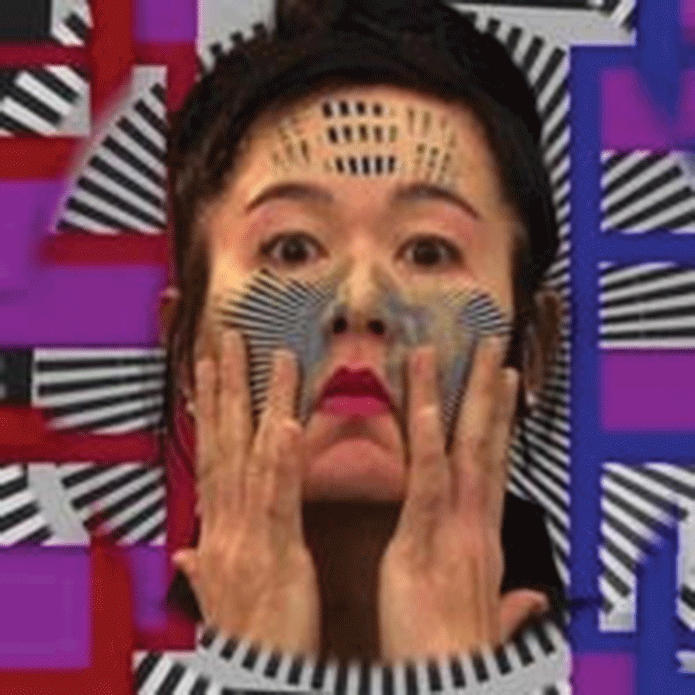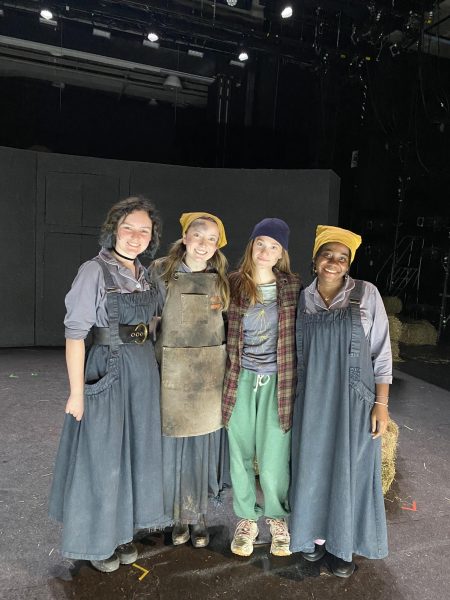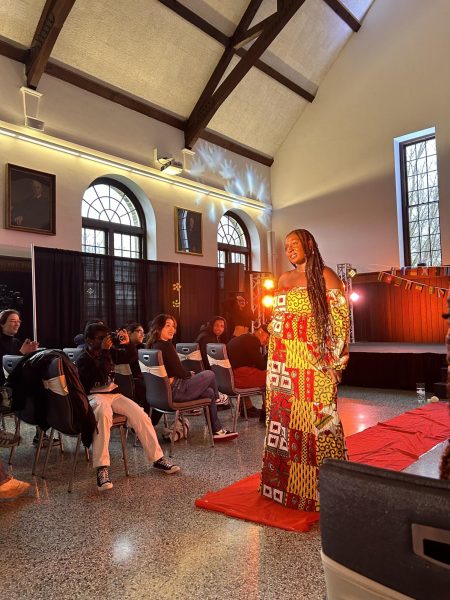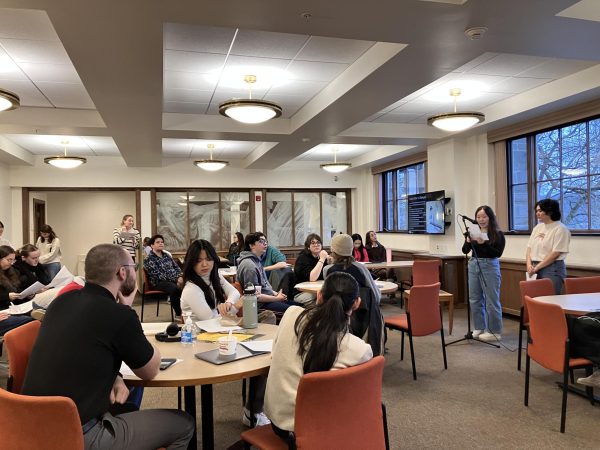Documentary Film as a Lens into Modernity
Hito Steryerl discusses the unique ability of the alternative documentary film to challenge and question society.
Students, faculty and members of the community gathered to watch a compilation of alternative cinema films on Tuesday, March 20, which included November from 2004 and In Free Fall made in 2010 by German artist Hito Steyerl. The event was sponsored by the Department of Art and Art History, the Film & Media Studies Program and the Colgate Arts Council.
Hito Steyerl, born in 1966 in Munich, is a German theorist, researcher, essayist, filmmaker and artist who has become a major component in the field of documentary filmmaking. She holds a doctorate in Philosophy from the Academy of Fine Arts Vienna and she is currently a professor of New Media Art at the Berlin University of the Arts, where she co-founded the Research Center for Proxy Politics.
Her principle topics of interest are media, technology and the global circulation of images. In her films, Steyerl plays with the elements of voice and authority, while juxtaposing images of fact and fiction footage to create interesting and dynamic films.
“The only thing we can say for sure about the documentary mode in our times is that we always already doubt if it is true… [This uncertainty] is not some shameful lack, which has to be hidden, but instead constitutes the core quality of contemporary documentary modes as such,” Steyerl wrote.
Thus, Steyerl pushes the boundaries of documentary film, as she obscures or troubles what is real in archival film and material, while also imposing truthful values onto fictional film materials.
Assistant Professor of Film and Media Studies Eli Horwatt explained his decision to screen Hito’s films at Colgate.
“Hito is one of the most interdisciplinary artists working right now. She writes theory, completes her own original research and she also makes installations pieces as well… she is a renaissance woman,” she said.
Further, Steyerl’s essay documentary films are at once tragic, sensory, funny and insightful case studies exploring the interactions of politics and philosophy. She has pushed both the role and label of the term “fine artist” through her interests in engaging with viewers in the presentational context of art. Her work is developed from factual research, collecting found images and personal interviews, culminating in innovative documentary work that is both forensic and surreal by nature.
In her documentary films, essays and lectures, Steyerl is not afraid to reveal the secrets she uncovers; through uncovering global power structures, obscurities and inequalities, Steyerl forces the viewers to question what is real and what is fictional while also keeping her films comical and smart. In her 2009 essay “In Defense of the Poor Image,” Steyerl claims that mass reproduced pictures are valuable.
“They spread pleasure or death threats, conspiracy theories or bootlegs, resistance or stultification… poor images show the rare, the obvious and the unbelievable,” she wrote.
Hito Steyerl’s work has incredible influence in times of modernity. She speaks honestly and provokes her viewers to engage with difficult subjects and issues through her artful critiques in the mode of documentary film.
Contact Caylea Barone at [email protected].
Caylea Barone is a senior from LaGrangeville, New York concentrating in environmental studies and art and art history with an emphasis in studio art. She...







